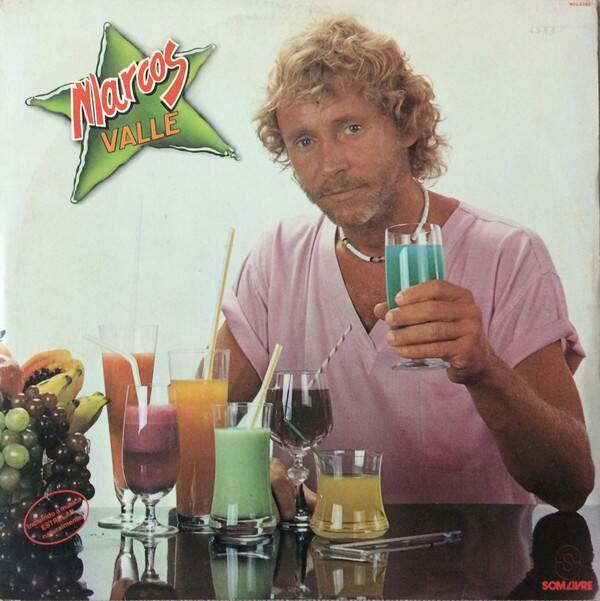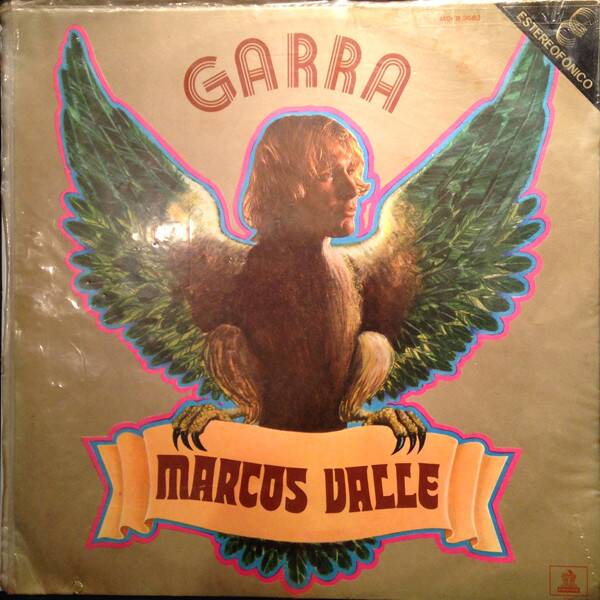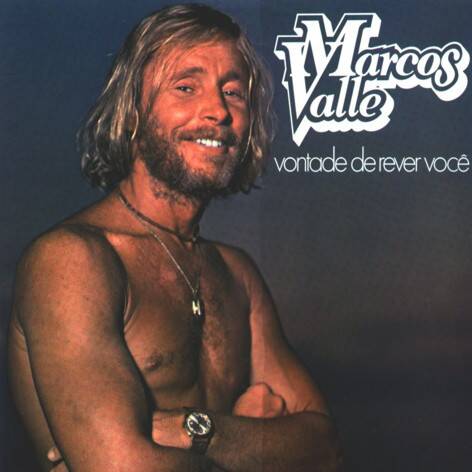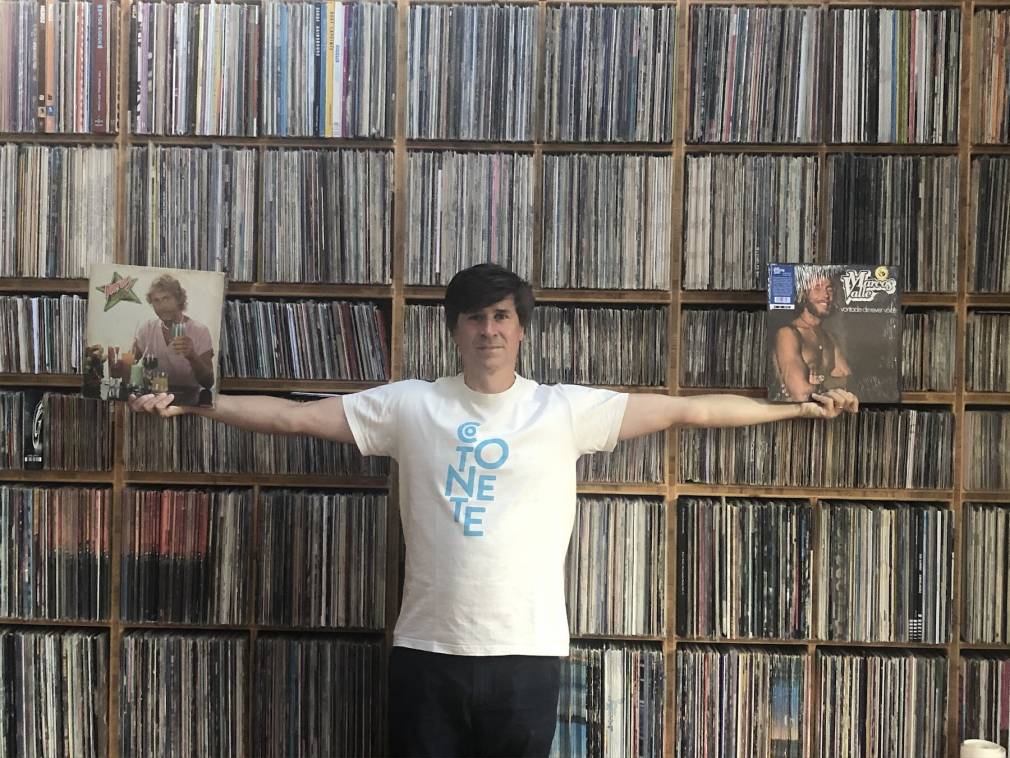This summer the boss of the label Heavenly Sweetness shares with us some of the treasures of his record collection. Read and listen with abandon! Today, the Brazilian Marcos Valle.
Hello all,
I’m delighted to spend another summer in your company, exploring and sharing some of the vinyls in my collection. Hopefully they’ll find a place in yours too! Last year we started with Jorge Ben’s (Brazilian) brass band and this year we open the season with another giant of Brazilian music: Marcos Valle. Once again we’re faced with such a vast discography containing so many hits that it’s going to be difficult to choose…
I discovered Marcos’ music on the compilation Brasilica by Gilles Peterson and Joe Davis (Far Out Records). For me that was a real initiation into the Brazilian music of the 60’s (Sergio Mendes, Jorge Ben, Elis Regina, Tamba trio…). Marcos Valle’s song “Crickets Sing for Anamaria” imprinted onto my eardrums this guitar riff on a percussion mat, an unstoppable melody (although the English accent definitely didn’t come from Oxford…) and this complete break from Batucada. In just 2 minutes and 15 seconds you can discover the quintessence of 60’s Brazilian music.
Right from the beginning with his debut album in 1963, Marcos Valle (along with his brother) was indeed a part of the new wave of bossa nova musicians. He went on to make several albums (sung in Brazilian Portuguese as well as in English) and his songs have been covered by countless artists. His 1966 instrumental album Braziliance shows the full extent of his talent as a composer/arranger. He also wrote many film scores and Telenovelas in Brazil and in the USA.
But the things that impress me most about Marcos Valle are his sense of melody, his singing, and his refrains. I’d like to demonstrate these through 3 of his albums:
Garra (1971)
In 1969, Marcos left bossa nova territory and began experimenting with more pop-rock, psychedelic and progressive sounds. This album is a great example of this evolution with its strings, choirs, orchestra, keyboards, and psychedelic effects. It’s a busy one!
Tracks like “Garra” and “Que Bandeira” are close to pop perfection – it’s like the Beatles, but with Brazilian rhythms and added groove. You never get tired of it. Try listening to it every morning this summer in order to fill up with good vibes and sunshine!!!! A track like “Paz e Futebol” is a great start.
Vontadé de Rever Vocé (1981)
Until 1974 Marcos strung together excellent albums like pearls (the original vinyls are worth an arm and a leg – even a kidney!), and experimented with jazz-funk with the future members of Azymuth, as well as with progressive rock and even hard rock.
Then comes a long break until this 1981 album. In 1974 he left Brazil for the United States, disappointed by the military government and its censorship. First he met up with his friend Déodato in New York, then decided to move to Los Angeles with its more Rio-like climate. Little by little he made his mark on the music scene, collaborating with Sarah Vaughan, Chicago, Airto Moreira, and finally Leon Ware with whom he created an intense artistic fusion.
By 1981 we’re back in Brazil, and with Marcos’ tour de force that built a tunnel directly connecting the roads of Copacabana to those of Santa Monica in California. This album is the result of his stay in LA, the atmosphere of the city, and his prolific collaboration with Leon Ware. It’s a sweet meeting of West Coast soul and Brazilian music; from R&B to samba.
To begin with Marcos recorded two tracks in L.A. with the Chicago musicians and Ware’s backing vocals, before returning to Rio, editing the tracks and adding Brazilian percussion.
The rest of the album was recorded in Brazil with big names like Sivuca, Airto Moreira, and José Roberto Bertrami from Azymuth….but listening to it you’d swear it’s a West Coast funk album recorded in Los Angeles. It’s all there: the super polished production, the effects, the grooves…all in a Brazilian style with Valle’s perfect vocals. It’s ideal for listening to whilst driving… in a top down convertible of course.
If you’re a fan of minimalism then this isn’t the album for you. Here you’ll find instruments in every corner including an accordion – something of a rarity in ‘80s funk. It is important to note that the accordion is a favourite instrument in music from Nordeste, a style that Marcos loved since childhood.
Marcos Valle (1983)
The sequel to Vontadé. It still has tracks written with Leon Ware but now with an even bigger sound and more boogie, including the celestial “Estrelar” – a hit that every club on Earth should play before our final journey round the sun. Again, this summer, if you want to get the party started and dance, this is the album for you. It’s tried and tested.
This album also has a moody side to it, mainly due to Brazilian disco boogie genius Lincoln Olivetti’s arrangements. Whenever you come across his name on a Brazilian album you know it’ll be a safe bet – good and groovy!
Telling stories about vinyls also tell stories of friendship…this record was given to me by Guts after one of his trips to Brazil a few years ago. He knew that I loved “Estrelar” and thought of me when he saw it on the shelves. So this album is all the more valuable… Thanks Gutsy!
To end, a little story about “Estrelar”, which was one of the last songs written with Leon Ware in the USA. As the track had no lyrics, it hadn’t been used before. Olivetti fell in love with the song and re-produced it, but when recording for the album came to an end it still had no lyrics. So the deal was simple: either Marcos would write lyrics as soon as possible or the track wouldn’t make it onto the album. Marcos rushed into the studio, played the instrumental at full volume wanting to express the energy of the song with words, and the result was “Estrelar”, which is all about getting in shape and taking care of yourself and your body in preparation for the summer – concerns that weren’t as widespread in 1983 as they are now, when Crossfit boxes and gyms are full.
This story explains the concept of the cover. For years I thought that Marcos – totally tanned – was posing in the middle of a load of cocktails before I realised – it’s fruit juice!!!! Each one more colourful than the last.
So there you go. A great program to keep you busy while you wait for episode two and the next installment on our musical adventure!
In the meantime, I’ve created a wonderful playlist on Spotify for you to listen to while you wait.







